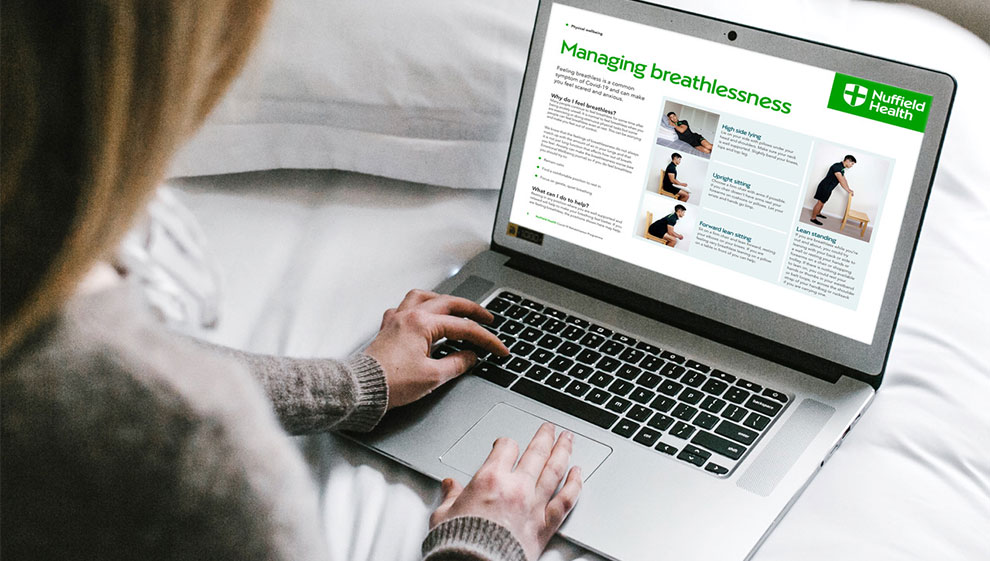Exploring the impact of long COVID on employees and tips to support them with recovery
Long COVID is a term commonly used to explain the signs and symptoms that continue following an infection of COVID-19. Some people may not be aware they had an initial infection but experience the symptoms of long COVID. The National Institute for Health and Care Excellence (NICE) defines long COVID as lasting more than twelve weeks, although some consider long COVID if symptoms have been experienced for eight weeks.
Symptoms of long COVID are varied and may change over time. Commonly reported symptoms include
- muscle pain
- joint pain
- fatigue
- loss of concentration
- sleep disturbances
- anxiety
- depression.
The length of time it takes to recover from long COVID will vary amongst individuals and can take many months for some.
Recovery from long COVID continues to be an area of intense research globally, and the medical community is learning more and more every day. As a result, treatment approaches will vary depending on your symptoms and should always be guided by a medical expert.
Tips to help with recovery
Improve your mood and mental health
You may experience days when you feel worse than others. Be kind to yourself and remember you are going through a period of recovery. As you move forward, you will likely have more good days than bad.
Suppose you can introduce a routine to your day, and it can be good for your mood. It may be as simple as introducing a morning walking, a period of reading or learning something new.
Keep active – if you can be involved with physical activity, then it can help the release of endorphins which will positively impact your mood.
If you feel that you are struggling and unable to speak to family or friends about your feelings, contact your GP.
Manage fatigue
Pacing is important. Identify critical tasks you need to complete, and don't overexert yourself, even if you feel ok. If a task or activity appears large, break it into smaller chunks and complete it over a longer period.
Build regular short breaks into your day - this will often be better than fewer long breaks.
A bit like your mood, you may experience good days and bad days. It’s important to not over do things too much during your good days as fatigue can sometimes take a couple of days to catch-up with you.
Speak to your manager at work as they may be able to consider a working pattern and tasks which allow you to recover without triggering excessive fatigue.
Ease muscular and joint pain
Exercise can be a great help but you should be guided by your GP following an illness and should not be too vigorous. When exercising, build up gradually and incorporate exercises that focus on stretching, strength and mobility. Always check with your doctor before starting.
Remember, don't go beyond what feels comfortable.
Sleep
Sleep is essential to help your recovery. An average adult needs 6-9 hours but this will vary from person to person.
Try and avoid watching TV or using your phone for at least 30 mins or more before going to sleep so your brain can calm. A bedtime routine for adults can also help, but avoid screen time.
Try and sleep in a dark room if possible, using an eye mask to help with this if your room is not entirely dark.
There are some popular sleep apps out there which can support you to relax on an evening and prepare you for sleep.
Diet
A diet of fruit and vegetables is essential to aid recovery and should include a variety of colours.
Increasing your water intake is also essential - 2 litres a day is what you should be aiming for.
Try and limit alcohol, smoking and high amounts of sugar.

COVID-19 Rehabilitation Programme
In September 2020 we launched our COVID-19 Rehabilitation Programme for those who are struggling with ongoing symptoms of COVID-19. The insights and best practice gained from the programme to date are discussed on our webinar panel discussion and you can find out more about the flagship programme here.
Last updated Friday 3 September 2021
First published on Friday 3 September 2021
